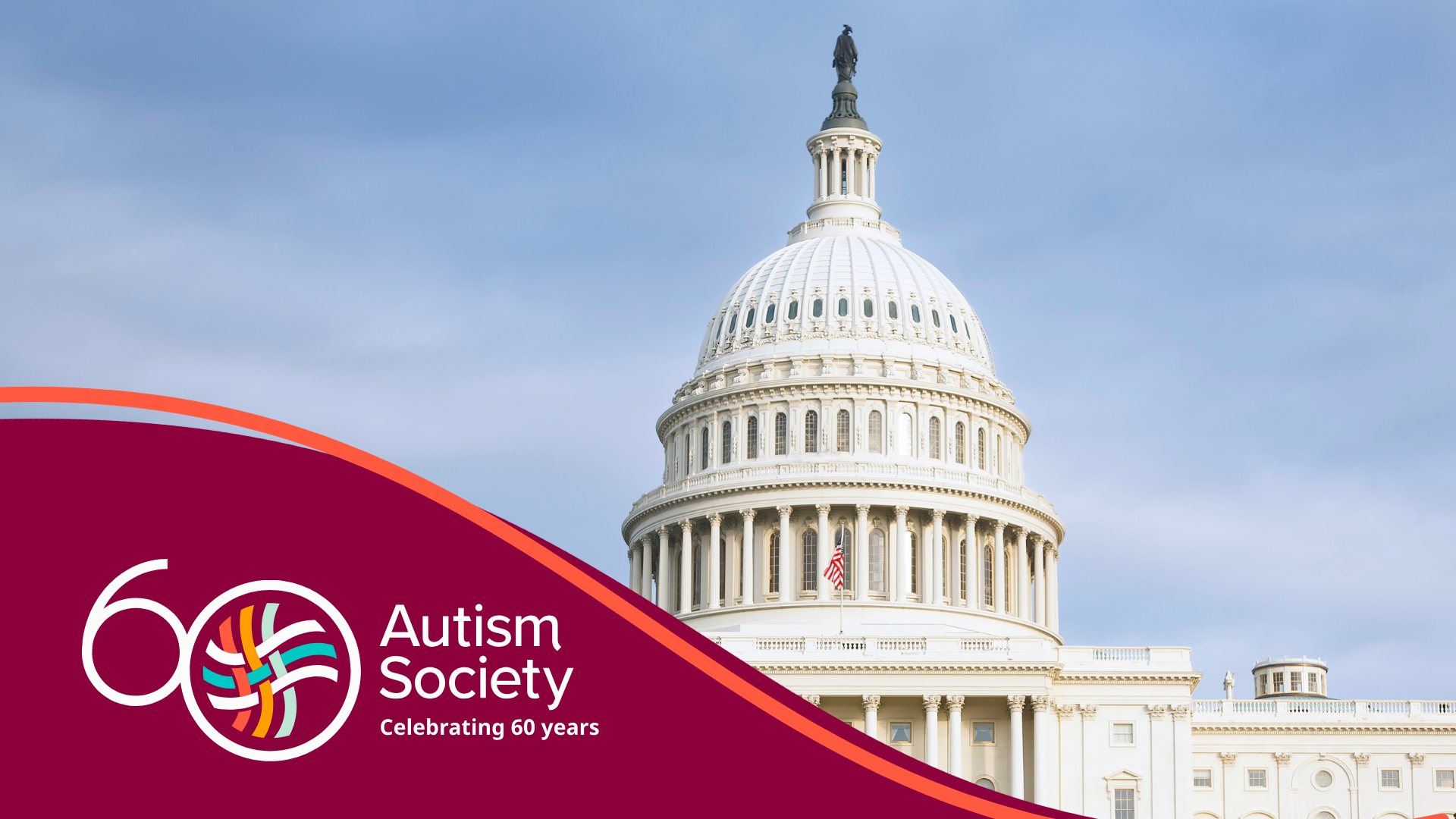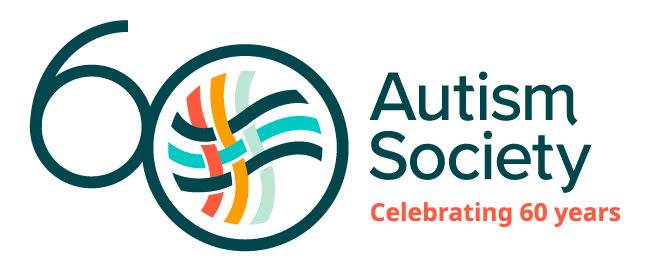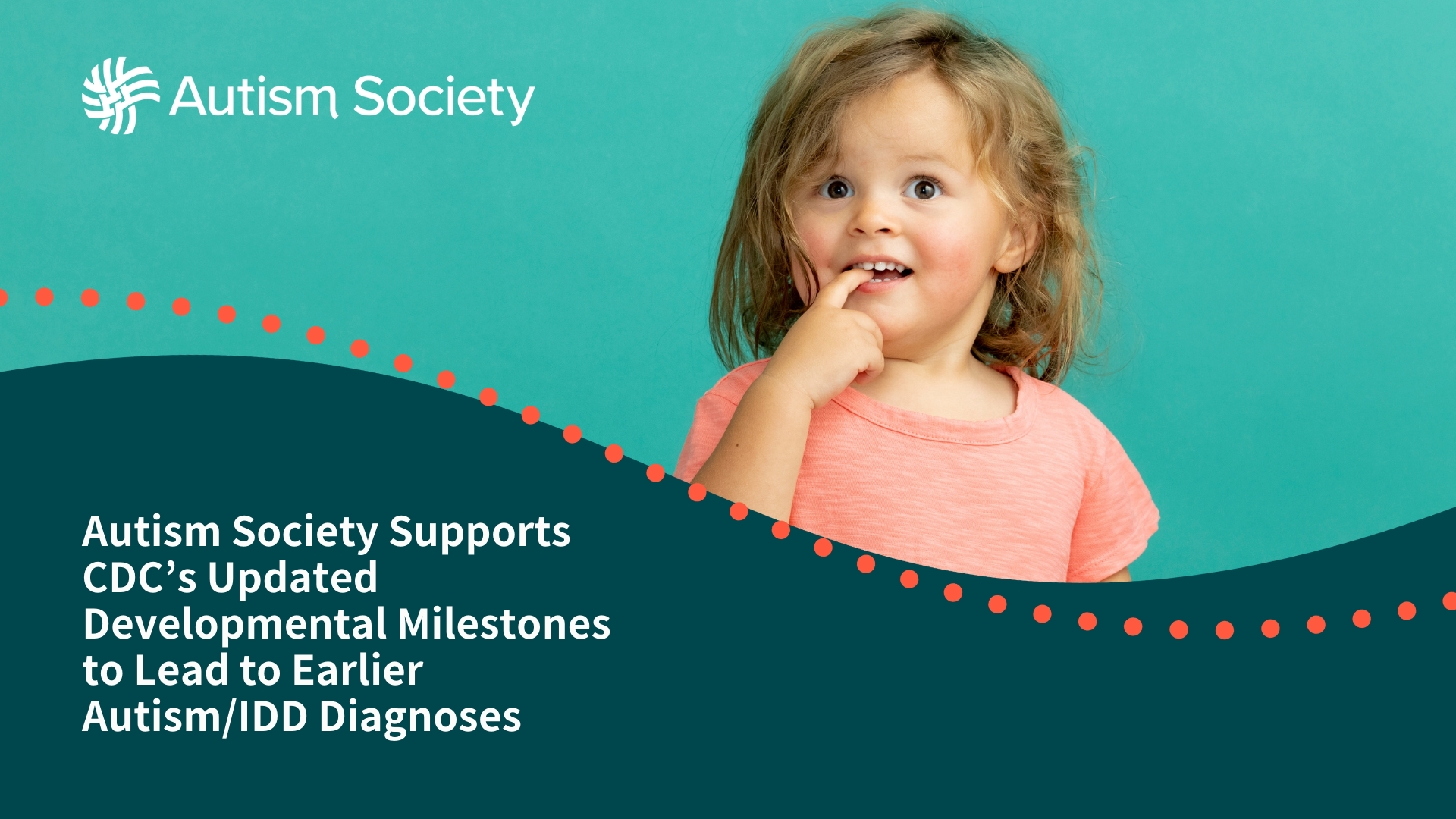
In this issue of Capitol Connection, find analysis of the Administration’s budget request for Fiscal Year 2026 and an update on the budget reconciliation process. With so much at stake, now is a crucial moment for advocacy. We encourage you to visit the Autism Society’s Action Center to connect with your Members of Congress on key issues; additionally, please consider supporting our state and federal advocacy work with a gift during this critical time, we need you now more than ever.
President Budget Analysis
The Administration sent Congress their detailed budget proposal for the Fiscal Year 2026. There are multiple concerns within the proposal for the Autism and greater disability community surrounding special education and critical autism related programs under Health and Human Services.
The Department of Education’s budget request and funding for the Individual with Disabilities Education Act (IDEA). IDEA is broken into multiple streams with the hallmark being Part B, or grants to states for K-12 education. The other streams include Part C, early intervention for infants and families, and Part D, national programs; National programs includes personnel preparation, technical assistance, parent information centers and technology, along with a line for preschool grants. The proposal combines state grants, national programs and preschool grants into a single block grant that states can then use as they want. While this may streamline programs, there is significant concern that it could lead to many programs—especially Parent Training and Information (PTI) Centers—going unfunded. States may be reluctant to support PTI Centers that help families identify and challenge deficiencies within the state’s education system.
The Health and Human Services (HHS) budget requests also have a few concerns. While Protection and Advocacy Centers and Developmental Disability Councils are fully funded, the University Centers for Excellence in Developmental Disabilities (UCEDDs) are completely defunded due to being identified as “radical diversity, equity, and inclusion (DEI) and critical race theory programs.” There are 68 UCEDDs across the country that provide critical research, resources, and advocacy for families and individuals with intellectual and developmental disabilities. In a document released by the Administration for Children, Families, and Communities (ACFC) on June 11th, the congressional budget justification for UCEDDs was changed to turn into a block grant program. It is unclear what the Administrations final proposal is. The network of Leadership Education in Neurodevelopmental and Related Disabilities (LEND) Programs is requested to continue in funding but the Developmental-Behavioral Pediatrics (DBP) Training Program and the Intellectual and Developmental Disabilities Research Centers (IDDRCs) is recommended to be cut.
The Autism Society will continue to advocate for full funding for all programs that support the Autism community as Congress starts deliberating spending bills. We signed on to multiple coalition letters including one for Protection and Advocacy network and National Institute on Disability, Independent Living, and Rehabilitation Research (NIDILRR).
Please use our Action Alert to share with your Member of Congress how critical funding for all relevant programs is.
Plain Language
The government shared its budget plan for 2026, which may cause problems for people with Autism and other disabilities.
One big issue is about money for the Individuals with Disabilities Education Act (IDEA). IDEA helps students with disabilities get the support they need in school. It has different parts:
- Part B gives money to states for K–12 schools.
- Part C helps babies and toddlers with disabilities and their families.
- Part D helps pay for training, tools, and centers that teach families about special education.
- There’s also money for preschool programs.
The new plan puts money from Part B, Part D, and preschool programs into one big fund. States can choose how to spend it. This could hurt programs like Parent Centers, which help families speak up for their kids. Some states may not want to pay for that.
There are also problems in the Health and Human Services (HHS) part of the budget:
- Protection and Advocacy Centers and Disability Councils would keep their funding.
- UCEDDs (centers that help with research, training, and support for people with disabilities) would get no money at all. The government says they want to cut these programs because they think they focus too much on race and diversity.
- The LEND Program, which trains doctors and others to help people with disabilities, is asked to stay.
- Two other programs—one that trains health care providers on developmental disabilities and one that funds IDD research centers—would be cut.
The Autism Society is speaking up to protect these programs. We’ve signed letters with other groups to support funding for all the programs that help people with Autism and disabilities. You can help! Use our Action Alert to tell your members of Congress that these programs are important and need funding.
Reconciliation
The Senate is currently considering the reconciliation bill recently passed by the House (see analysis in our May edition of Capitol Connection). Senators are reviewing the House language and making edits as they see fit. Each section of the Senate bill must be reviewed by the Senate Parliamentarian, who determines whether each provision complies with reconciliation rules. To be included in a reconciliation bill, a policy must have a direct impact on the federal budget; if it does not, the Parliamentarian will rule it out.
The Congressional Budget Office (CBO)—a nonpartisan government agency that provides budgetary and economic analysis to Congress—recently released an updated analysis of the House-passed bill. According to the CBO, due to several Medicaid-related provisions—including work requirements, provider taxes, and increased eligibility checks—approximately 7.8 million individuals would lose Medicaid coverage over the next 10 years. The CBO also estimates that about 3.5 million individuals would lose health insurance coverage under the Affordable Care Act (ACA) as a result of proposals in the bill.
The CBO’s letter offers detailed insights into each proposal and its projected impact on health coverage. The Autism Society, in partnership with many other organizations, is ramping up advocacy efforts in the Senate. We urge advocates to take action during this critical period by using our Action Alert to contact your Senators.
New Resources:
- Families USA Summary on impact on Medicaid, Affordable Care Act, and Medicare
- Find data state by state on how many could lose health insurance
- CPSD One Pager on How Medicaid helps disability employment
- Coalition letter of over 1100 Organizations to the Senate
Plain Language
The Senate is now looking at a bill that the House of Representatives already passed. Senators are reading through the bill and making changes. Before the Senate can vote, each part of the bill has to be reviewed by someone called the Senate Parliamentarian. This person checks if the rules are being followed. If it doesn’t, the Parliamentarian will remove it.
The Congressional Budget Office (CBO) is a government group that explains how laws affect money. The CBO just shared an updated report on the House’s bill. They found that about 7.8 million people could lose Medicaid over the next 10 years. The report also says that about 3.5 million people could lose health insurance under the Affordable Care Act (ACA) if the bill passes.
The Autism Society is working hard to make sure the Senate understands the impact of these changes.
We are asking advocates to speak up now. Use our Action Alert to contact your Senators and share why these programs matter to you and your community.
Share:






